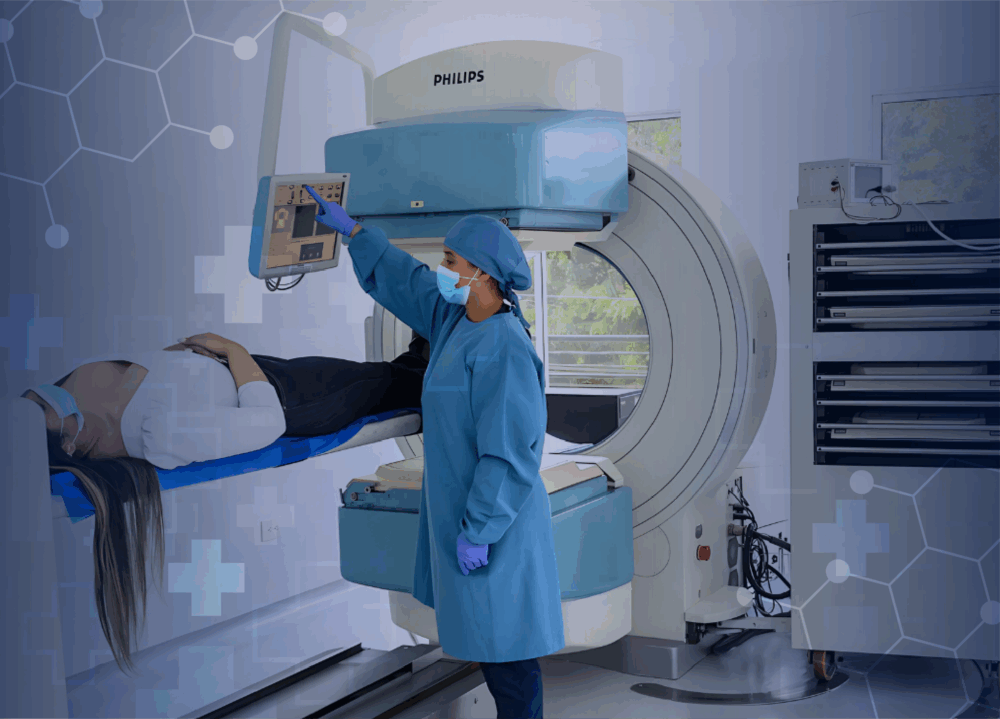
Diagnostic Imaging Services
Scintigraphies
Scintigraphy (also known as nuclear medicine scans) are diagnostic imaging studies that use safe radiopharmaceuticals to obtain detailed images of organs and tissues. The procedure involves injecting or administering a small amount of a radiopharmaceutical, which emits signals detected by a gamma camera. It is a painless, non-invasive process that typically lasts between 30 minutes and 2 hours, depending on the specific study.
During the procedure, the patient lays down in an examination table, while the equipment registers images that assist in diagnosing tumors,bone diseases, pulmonary conditions or thyroid disorders.
Below is a list of the types of scintigraphy studies we perform.
List of Scintigraphy Studies by Type
Radioisotope therapies (Therapeutic Nuclear Medicine)
Radioisotope therapy uses controlled doses of radioactive substances,such as iodine-131,to treat conditions like hyperthyroidism or thyroid cancer. The radiopharmaceutical is administered orally or intravenously and it specifically targets the affected cells,minimizing damage to healthy tissue. Depending on the dose, procedure can be outpatient or require short-term isolation in a specialized room. The procedure is safe, overseen by specialists and can last between minutes to several days , in cases, requiring isolation.
FAQ here
What’s a radiopharmaceutical,and is it safe?
A radiopharmaceutical is a substance that emits signals to create images. It’s safe and it’s quickly eliminated from the body. Its radiation levels are similar to those of an X-ray.
How long does Scintigraphy take?
It depends on the type but it usually lasts between 30 minutes and 2 hours, including preparation and imaging.
Do I need to fast before the procedure?
For most scintigraphies, fasting for 4-6 hours is recommended.Please review the specific instructions for each type of procedure
Can a companion be present during the procedure?
For safety reasons, companions must wait outside the Scintigraphy Room, but the staff will assist you throughout the whole procedure.
When will I get my test results?
Test results are usually ready within 24-48 hours and are reviewed by a nuclear medicine specialist.

